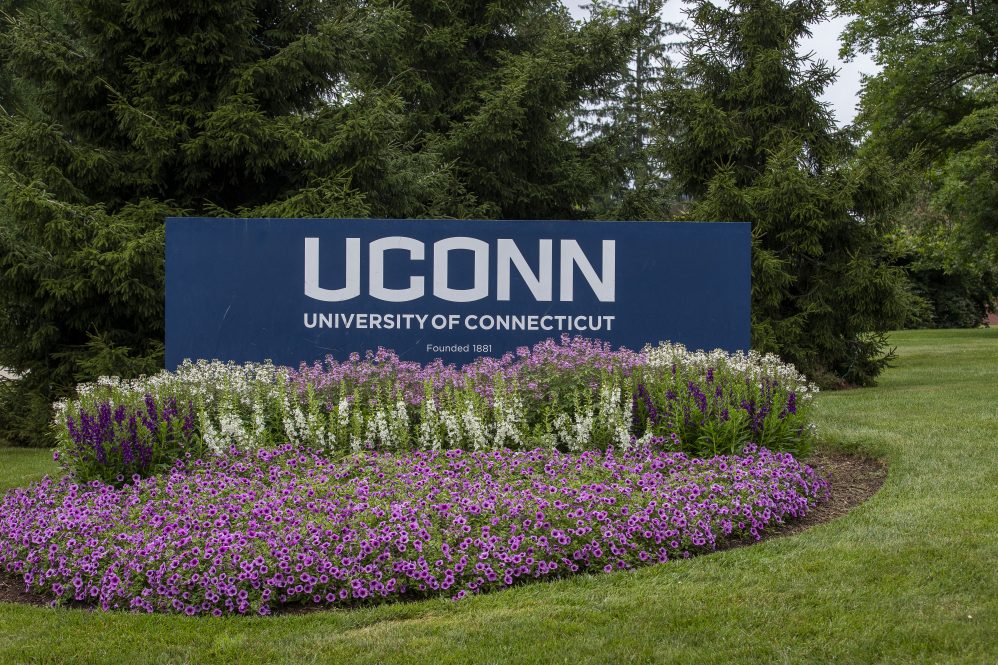UConn is updating its procedures for former students whose academic struggles hampered their college journey, giving them an earlier opportunity to seek readmission and get their undergraduate careers back on track after academic dismissal.
The changes simplify and clarify the process while also recognizing that with the right support, an academic dismissal can be only a temporary interruption in a student’s otherwise solid college career – rather than the end of it entirely.
While helping get former students get back on track to a UConn degree, the updates also support a key goal in UConn’s Strategic Plan to reach and consistently maintain a rate of 90% or more of its students graduating in six years or less.
Currently, about 83% of UConn’s students graduate within six years, notably higher than the national average of 62.2%.
Before the policy change, students who were academically dismissed from UConn for the first time could apply for readmission after two semesters away, equivalent to one academic year. The change that goes into effect this fall reduces that to one semester.
UConn also is changing some of the policy’s language removing labels such as “probation” and instead using less stigmatizing terminology so the students are more willing to engage with support resources.
The recommendations came after a comprehensive review by UConn’s Office of Undergraduate Advising, which oversees the academic standing and dismissal process with numerous campus partners.
Changes were presented to University Senate, which adopted them in April as an update to the University Bylaws. They go into effect in the fall semester.
Erin Ciarimboli, UConn’s Director of Undergraduate Advising, says that academic advisors have noticed a shift in recent years in the challenges impacting undergraduates’ ability to succeed academically.
“These shifts suggested a need to review our longstanding policies, practices, and communications, as well as national research and best practices,” she says. “We are confident that these changes will increase our students’ engagement with campus resources as they encounter academic challenges, and ultimately, growth in the number of students who can successfully complete their UConn degrees.”
The updates also reflect the reality that for some dismissed students, keeping afloat academically may have been difficult amid personal issues, financial concerns, mental health challenges, or other circumstances unrelated to their scholastic ability.
“When students are having difficulty in their academics, it’s very rarely based only on the intellectual match between what they want to do and what they’re trying to do,” Karen Bresciano, a University Senate member who is co-chair of its Scholastic Standards Committee, recently told the UConn Board of Trustees.
“Almost always, there is something to do with mental health, family issues, financial difficulties, working 40 hours a week, housing or food insecurity, and the other kinds of issues that we often see emerging among students,” said Bresciano, who also is assistant dean of The Graduate School.
For millions of former college students nationwide, those temporary struggles can change the direction of their lives permanently as they become what’s known as “stopped out,” moving on to other endeavors while carrying some college credits, but no degree.
At UConn and elsewhere, the COVID-19 pandemic’s immediate and lingering impacts exacerbated the problems, leading to numbers of students on academic warning that were higher than in any time in recent memory.
Although those numbers have dropped back to typical levels, the experiences prompted UConn and many institutions to review their readmission policies with an eye toward clarifying and simplifying the processes.
Currently, only 15% of UConn students who are dismissed for academic reasons are readmitted. Some enroll at other institutions and others step back from college entirely, having either paid for – or still paying off – credits they aren’t applying to a degree program.
By shortening the minimum required time away between a student’s dismissal and potential return, UConn hopes to get them back on track more quickly. And once they’re back, a range of academic support services are available to help build their confidence that they can return to good academic standing and succeed at UConn.
“I believe this change will greatly benefit students and allow them to persist to graduation,” says Julie Lynch, director of the UConn Academic Center for Exploratory Students. “The reduced time away allows students to have a short break while allowing them to focus on improving other areas of their lives, such as mental health, so they can return academically stronger than before.”
Before the policy change, students who were academically dismissed for the first time could apply for readmission after two semesters away, equivalent to one academic year. The change that goes into effect this fall reduces that to one semester.
Readmission is not an automatic process. Dismissed students must successfully complete academic coursework before reapplying to UConn, with those academic expectations now clearly outlined to provide more transparent information.
If the student is academically dismissed for a second time, they can reapply after four semesters (two academic years) rather than the old standard of eight semesters.
Former students who were dismissed under the old rule and are awaiting their chance to reapply can also do so under the timelines set out in the updated policy. However, readmission is not allowed after three academic dismissals.
The bylaws updates also change the word “probation” to “academic notice,” reflecting an approach that UConn and many institutions have adopted to move away from punitive language that can exacerbate the students’ emotions about their situation.
The University also has many measures in place to try to avoid dismissal in the first place, including engaging with students as they create an academic success plan; limiting their credits for the semester in which they are on academic notice; meeting with academic success advisors; and engaging in campus support resources such as the UConn Connects program.
This is the second bylaw change in recent years focused on academic success for students who have faced challenges.
In fall 2023, as a result of the work of the Scholastic Standards Committee, the University introduced the option of Academic Renewal. Under that process, undergraduate students who have been separated from the university for at least eight consecutive semesters may seek academic renewal at the time of their application for readmission.
Through academic renewal, a student may remove up to 16 credits of coursework with a grade of C- or lower from their GPA calculation after rematriculating at UConn.
The policy was designed to provide motivation, incentive, and access for those students hoping to return to UConn to complete their degree after a significant time away. It allows them to represent their academic work more clearly at the point in time when they are completing their degree and helps remove barriers, both real and perceived, to degree completion.
“The undergraduate advising community has programs and many different resources to help students who are academically challenged,” Bresciano said. “It’s not just about what courses to take; it’s about looking at the whole student and helping them achieve success.”



